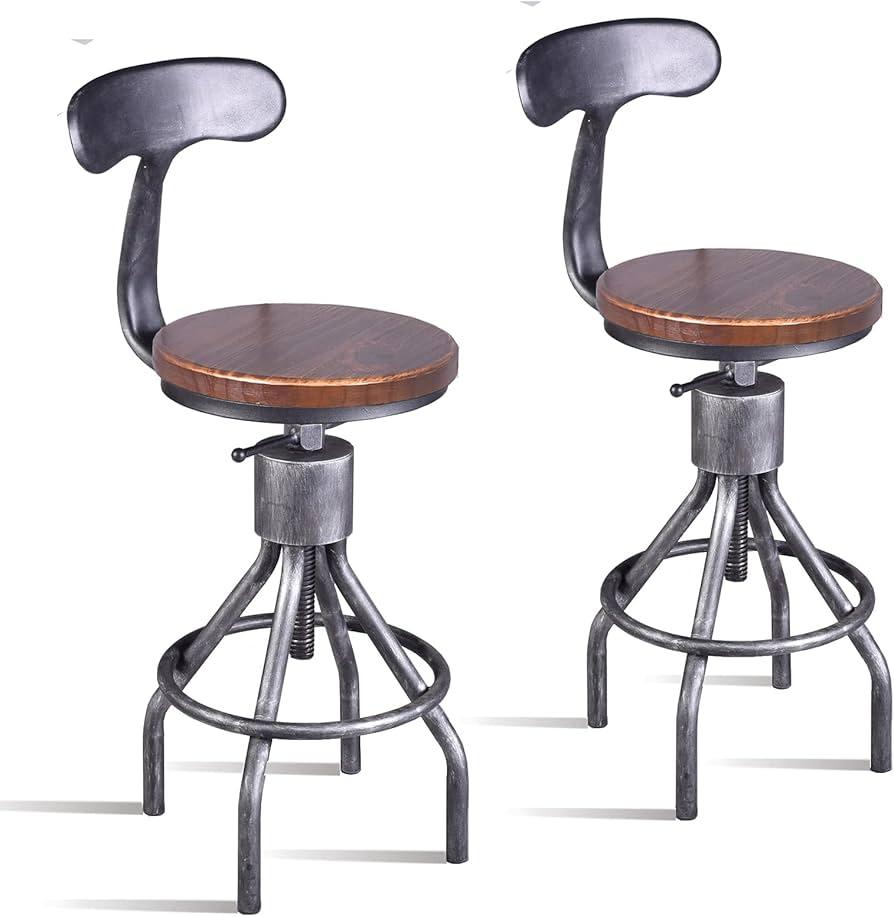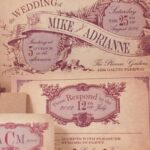Embracing Nostalgia: The Allure of Vintage Restroom Signs
In a world where design often leans towards the sleek and modern, there lies a hidden charm within the realms of vintage restroom signs. These small yet significant pieces of art tell stories of bygone eras, capturing not just the essence of bathroom etiquette but also a glimpse into the cultural fabric of their time. From intricate wrought iron plaques to playful embossed tin designs, each sign serves as a window into the aesthetic sensibilities and social norms that shaped public spaces. As we explore the fascinating history and diverse styles of these often-overlooked artifacts, we discover how vintage restroom signs not only adorn our facilities but also evoke nostalgia and spark conversations about collective memories. Join us on this journey through time as we uncover the enduring appeal of these quaint indicators that have stood the test of time, inviting us to pause and appreciate the charm of the past in our everyday lives.
Exploring the Charm of Vintage Restroom Signs
Vintage restroom signs are more than mere indicators; they are artifacts that whisper stories of the past. Each sign, adorned with unique typography and imaginative graphics, possesses its own charm, evoking a sense of nostalgia for bygone eras. Collectors and enthusiasts cherish these pieces as they often reflect the cultural trends and artistic movements of their time, showcasing a delightful blend of functionality and creativity. A visit to a diner or vintage bar filled with such signs can transport one back to the mid-20th century, where the design language was bold, playful, and sometimes even cheeky.
When exploring the allure of these restroom signs, one may encounter various styles and materials, from wrought iron to porcelain. Some popular features include:Vintage Aviator GogglesWisconsin Vintage FestVintage Carnival Glass Vase
- Art Deco Designs: Characterized by geometric shapes and lavish ornamentation, these signs add a touch of elegance.
- Rustic Flair: Weathered wooden signs often evoke a homely atmosphere, perfect for cafes or rustic-themed establishments.
- Colorful Illustrations: Signs depicting whimsical characters can brighten up any restroom, making the experience more delightful.
| Sign Style | Material | Era |
|---|---|---|
| Art Nouveau | Enamel | Early 1900s |
| Mid-Century Modern | Plastic | 1950s |
| Industrial | Metal | Late 20th Century |
The Art of Collecting: What to Look For in Vintage Signage
When diving into the world of vintage restroom signs, collectors should keep an eye out for a few key characteristics that signify quality and authenticity. First and foremost, condition is paramount; look for signs with minimal wear and no significant damage, as this will enhance their value. Pay attention to the materials used; porcelain and metal signs are often more coveted than plastic variants. Additionally, the design elements, such as typography and imagery, should reflect the era they originate from, providing insights into the cultural and social context of the time.
Another important aspect to consider is the manufacturer’s mark. Signs bearing the logo or insignia of well-known manufacturers can increase desirability among collectors. Furthermore, scarcity plays a crucial role in value; limited production runs or signs that were only displayed in specific locations often fetch higher prices. Here’s a quick reference table to help identify key features:
| Feature | Description |
|---|---|
| Condition | Minimal wear or damage enhances value. |
| Material | Porcelain and metal are more desirable. |
| Design | Typography should reflect the era. |
| Manufacturer’s Mark | Known logos increase desirability. |
| Scarcity | Limited runs yield higher prices. |
Restroom Signs from Around the World: A Global Perspective
As we traverse the globe, the design and aesthetics of restroom signs tell stories of culture and tradition. One fascinating aspect of vintage restroom signs is how they embody the artistic sensibilities and societal norms of their time. In the early 20th century, these signs often featured intricate designs with whimsical illustrations, making a mundane sign an object of beauty. Picture a delicate porcelain sign adorned with Art Nouveau motifs, starkly different from the sleek, minimalist designs of today. These vintage signs not only guided patrons but also served as conversation starters, showcasing the craftsmanship and creativity prevalent in that era.
Countries around the world have contributed unique spins to restroom signage, enriching our understanding of gender identity, accessibility, and humor. For instance, while vintage signs in Europe often highlight gender distinctions through elaborate imagery, Asian designs might utilize symbols that focus on universal accessibility. Here are a few notable styles:
- Victorian England: Ornate lettering with depictions of gentlemanly and ladylike figures.
- Mid-century America: Bold geometric shapes and pastel colors expressing modernity.
- Japanese Ukiyo-e: Elegant depictions of nature subtly indicating restroom locations.
Exploring these vintage restroom signs through a cultural lens reveals how attitudes toward public facilities have evolved. The stunning craftsmanship, along with the targeted messaging, highlights greater themes of societal values, including the propriety of restroom use and the importance of inclusivity. Antique signs, when showcased in today’s spaces, often draw nostalgia and appreciation from viewers, serving to bridge the gap between history and modernity while preserving the spirit of decorum that restroom signs were initially intended to convey.
Preserving History: Tips for Restoring Vintage Signs
When embarking on the journey of restoring vintage restroom signs, the main goal is to maintain their original charm while ensuring they are functional and visually appealing. Start by carefully examining the sign for any signs of damage, such as rust, peeling paint, or fading colors. Clean the surface with a gentle solution of soap and water to remove grime, ensuring you don’t use harsh chemicals that could further deteriorate the material. Once cleaned, consider applying a protective sealant specifically designed for metal or wood, depending on the sign’s material, to prevent future wear and tear.
Next, you’ll want to address the aesthetic aspects of the restoration. If the sign has original paint that is chipped or faded, consider touching up the colors using high-quality acrylic paints that match the original hues. For wood signs, a light sanding can do wonders to rejuvenate the surface. To further enhance the sign’s appeal, you can frame it with complementary materials or add a decorative mounting bracket. Remember to keep a record of the sign’s original state with detailed photos and notes, as this can be valuable for future restorations or for sharing with fellow vintage enthusiasts.
Creative Displays: Incorporating Vintage Signs into Modern Decor
Vintage restroom signs are a delightful way to blend the charm of the past with the sleekness of modern decor. These relics of bygone eras not only serve a functional purpose but also add character and a story to your space. Imagine an old porcelain sign depicting a whimsical figure, nestled among contemporary furnishings. Such a contrast can create an intriguing focal point that invites conversation and adds a touch of nostalgia. To highlight vintage restroom signs in your decor, consider the following ideas:
- Gallery Walls: Combine multiple vintage signs with modern art to create a stunning visual display.
- Shelving Arrangements: Place small vintage signs on floating shelves alongside potted plants or contemporary sculptures.
- Framed Displays: Frame smaller signs and arrange them as a collection, combining various styles and colors.
Transforming your space with these charming signs can elevate the aesthetic appeal while paying homage to their historical significance. When selecting signs, consider materials such as metal, porcelain, or wood, each lending a unique flair to your decor. To help you visualize the integration of these vintage treasures, here’s a simple table illustrating different styles and their potential placement:
| Sign Style | Suggested Location | Complementary Decor |
|---|---|---|
| Porcelain with Bold Colors | Bathrooms or Entryways | Contemporary Lighting Fixtures |
| Rustic Wood | Dining Areas or Kitchens | Farmhouse-Style Accents |
| Metallic Signs | Home Offices or Studios | Modern Minimalist Furniture |
Popular Styles and Trends in Vintage Restroom Sign Design
In the realm of vintage restroom sign design, the allure of nostalgia is captured through various styles that evoke a sense of charm and character. Many designs are inspired by the Art Deco movement, featuring bold, geometric patterns and rich color palettes. These signs often highlight stylized figures that are both elegant and easy to recognize. Additionally, the Mid-Century Modern approach, with its minimalist aesthetic and whimsical designs, has gained popularity, showcasing clean lines and an iconic look that harks back to the 1950s and 1960s. The combination of function and aesthetic appeal remains paramount, making these signs a perfect marriage of art and practicality.
Another trend that has recently flourished is the use of vintage typography. Signs fashioned with ornate fonts, hand-painted elements, or even stenciled lettering bring a unique personality to restroom spaces. Complementing this trend are materials that tell a story—like reclaimed wood or brass—for a rustic feel. Below is a quick comparison of some popular design elements:
| Design Element | Description |
|---|---|
| Color Palette | Warm neutrals and pastel shades |
| Figures | Stylized and abstract representations |
| Materials | Wood, metal, and glass for vintage feel |
| Font Style | Ornate, playful, or retro serif types |
Q&A
Q&A: All About Vintage Restroom Signs
Q: What are vintage restroom signs and why are they popular?
A: Vintage restroom signs are decorative markers that guide patrons to men’s and women’s restrooms, often embodying artistic designs and retro aesthetics from various decades. Their popularity is largely tied to nostalgia; they evoke a sense of charm and character from a bygone era, making them desirable for both collectors and those seeking to add unique touches to home decor or commercial spaces.
Q: What eras are most represented in vintage restroom signs?
A: Vintage restroom signs span several eras, with iconic designs from the 1920s through the 1970s being particularly notable. Each period reflects the cultural and artistic trends of the time, such as Art Deco influences in the 1920s, mid-century modern styles of the 1950s, and colorful, playful designs from the 1970s.
Q: How can one identify a genuine vintage restroom sign?
A: Genuine vintage restroom signs can often be identified by their materials, such as enamel, porcelain, or metal, as well as specific design features characteristic of certain eras. Familiarity with manufacturer marks, styles, and common color palettes can also aid in determining authenticity. Additionally, patina and wear can indicate true vintage origins, as modern reproductions are typically more pristine.
Q: Where can one find vintage restroom signs for purchase?
A: Vintage restroom signs can be sourced from various places, including antique shops, flea markets, online marketplaces like eBay or Etsy, and specialized vintage stores. Estate sales and auctions are also excellent hunting grounds for unique finds.
Q: Are vintage restroom signs suitable for modern interior design?
A: Absolutely! Vintage restroom signs can add a quirky, nostalgic flair to modern interiors. They work particularly well in eclectic, retro, or industrial-themed spaces. Used thoughtfully, they can become eye-catching conversation starters while blending harmoniously with contemporary decor elements.
Q: How do vintage restroom signs compare to modern signage?
A: Vintage restroom signs typically exude character and craftsmanship absent in many modern designs. While modern signage often leans towards minimalism and functionality with clean lines and universal symbols, vintage signs celebrate intricate designs and typography. This divergence allows vintage signs to stand out as functional art pieces in any setting.
Q: Can vintage restroom signs have any value beyond decoration?
A: Yes, vintage restroom signs can have significant collectible value, especially rare or well-preserved pieces. Many collectors view them as investment items; certain signs can appreciate over time. Additionally, they serve as historical artifacts, offering insights into social norms, gender representation, and design trends of the periods in which they were made.
Q: Are there any care tips for maintaining vintage restroom signs?
A: To maintain vintage restroom signs, keep them out of direct sunlight, which can fade colors and damage finishes. Dust them regularly with a soft cloth, and for metal signs, occasionally polish them with appropriate cleaners to prevent rust or tarnishing. If restoration is needed, consult an expert to preserve the sign’s value and integrity.
Q: Can vintage restroom signs be customized or altered?
A: While it’s possible to customize or alter a vintage restroom sign, doing so may decrease its collectible value. If modifications are necessary for a specific use, consider keeping the original piece intact for potential resale or display in its unaltered form. Preservation often trumps aesthetic alterations in the world of collectors and vintage enthusiasts.
Q: What tips do you have for incorporating vintage restroom signs into a restroom space?
A: When incorporating vintage restroom signs into a restroom space, consider pairing them with complementary decor—like antique fixtures or vintage tiles—for a cohesive look. Position the signs at eye level near the entrance or above doors for visibility. Incorporating themed elements can enhance the overall vibe, making the restroom not just functional, but a delightful experience for visitors.
Key Takeaways
In a world where the simplest of symbols can evoke nostalgia, vintage restroom signs stand as timeless reminders of our shared past. Each sign, with its unique character and charm, tells a story—a blend of function and fashion that captures the essence of bygone eras. As we embrace modern designs and minimalist aesthetics, let’s not forget the whimsical charm that these classic signs impart in public spaces, homes, and boutiques. They remind us of a time when creativity danced hand-in-hand with practicality, inviting us to not only designate space but to celebrate it. So, whether you’re a collector, a decorator, or simply an admirer of vintage art, the allure of these restroom signs transcends their utility, turning them into cherished artifacts that bridge the gap between functionality and the beauty of yesteryear. In our fast-paced lives, may we continue to find joy in the little things—like a quaint sign that leads us to a point of pause, reflect, and remember.


